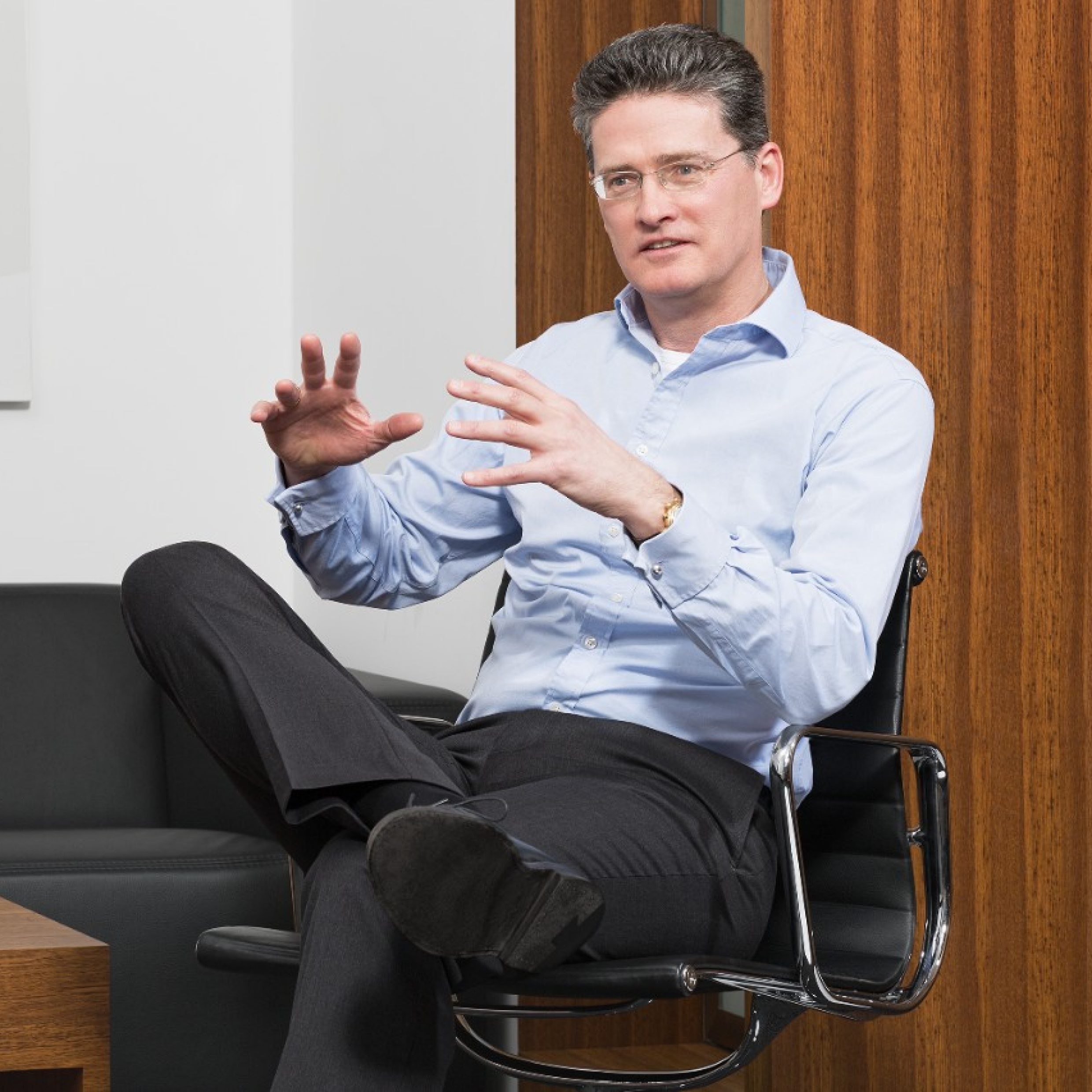Individuals are now front and centre when it comes to taking responsibility for managing their own retirement planning. However, they do not need to operate in isolation: an army of advisors and providers are ready to assist people when it comes to making some of the most important decisions of their lives.
- Individuals need the support of advisors and providers to build adequate long-term savings
- With the help of technology, both are improving the help and support that they can provide for their clients
- Transparency and simplicity should be key considerations when creating financial products and solutions
Attempting to go it alone in the financial world has become increasingly precarious. Volatile investment environments can make stock markets a bewildering place for the uninitiated, while bond markets are delivering their lowest yields in living memory.
Stephen Kavanagh, chief executive of Chase de Vere, a UK-based independent financial advisor, says that more individuals need to recognise the benefit of working with advisors. "Decisions that individuals make about their retirement planning, to ensure they have a sustainable income in retirement, are too important to get wrong; so it is essential to get the right advice," he explains. "Making your own financial decisions could easily prove to be a false economy."

He urges individuals to take advantage of advice from independent financial advisors (IFAs), who can oversee savings and investments for clients, ensure that they are invested tax efficiently and keep on top of changing legislation. IFAs will also help shift strategies to meet clients’ changing objectives.
Life is complex, presenting a series of events each with its own set of financial challenges. Mr Kavanagh says that "people may experience individual setbacks to their long-term savings. This could include divorce, redundancy or short-term investment losses. They must face these challenges and may need to adapt their plans accordingly."
In fact, IFAs can offer advice in most areas of personal finance. Paul Stanfield, chief executive of the Federation of European Independent Financial Advisers, a trade association, asserts that knowledge gaps exist around financial planning. "Starting with simple household budgeting, the public in general seems to have inadequate knowledge and appreciation," he says.
Arm’s length advice
In the UK, professional services firm PwC surveyed more than 1,000 people aged 50 to 65 and found that nearly two-thirds (63%) wanted advice on how to access their pension pots.However, PwC’s UK insurance leader, Jonathan Howe, says that the majority of these savers would struggle to get help from an IFA since their pots were worth less than £40,000 (€52,700). "Many consumers may not have a big enough pension pot to justify advice fees," notes Mr Howe.
To overcome this obstacle, advisors and providers are beginning to roll out generic financial guidance to the mass market with the help of technology. Offering free or low-cost online guidance is increasingly popular with those wanting to reach people outside the normal fee-paying market.
Mr Kavanagh says that "if people have fairly simple financial requirements, then a restricted advice service or a remote service by telephone or online can meet their needs. However, for those with more complex finances or larger pension or investment funds, who want to consider all of the options, independent financial advice should prove invaluable."
Keep it simple
Beyond advisors, providers also play a role in supporting people to build their long-term savings. Financial services companies, including asset managers, insurers and banks, have a responsibility to provide products and services that not only meet savers’ needs, but are accessible and transparent as well."
The public, understandably, finds most products too complex. We need to develop simple products to meet simple needs—not least as that is what most people have: straightforward goals and ambitions", remarks Mr Stanfield.
Yet while individuals may have simple goals, no two savers are the same and providers need to have a flexible product range to work with changing demands.
Mr Kavanagh suggests that collaboration between advisors and providers can drive future innovation in financial products. He says: "Financial products need to adapt as the environment and people’s lives change. It is financial advisors who are at the coalface, speaking with clients and understanding their needs and their concerns." Mr Kavanagh argues that advisors can feed proprietary knowledge back to product providers and act as the "champions of the client", pushing for greater transparency, flexibility and lower costs.
The right rules
The regulatory environment, too, is critical in ensuring that financial services companies help individuals save for the long haul.
Nicolas Jeanmart, head of personal insurance, general insurance and macroeconomics at Insurance Europe, points to recent legislation that places additional burdens on insurers providing long-term financial products. He singles out policies that require insurers to hold higher levels of capital when investing in particular assets as making it more challenging for companies to deliver affordable and flexible savings products.
"To continue providing suitable long-term savings products to their customers, insurers need to have a regulatory framework that takes into account their long-term business model. Unfortunately, this role has often come under threat over recent years," explains Mr Jeanmart.
He also calls on local governments to give individuals incentives to save, notably through efficient tax frameworks.
Boiling it down
Although advisors and providers build an environment that supports a longer self-determined life, it is ultimately up to individuals themselves to take control of their personal retirement planning.
Lukas Riesen, partner at PPC Metrics, a Swiss-based consultant, says that "the products and solutions are there but people simply do not save enough. At the end of the day it is simple: save more, work longer and spend less. But that is usually not in people’s minds."

Nils Frowein, chief executive officer at Swiss Life International and chairman of the board at Chase de Vere, puts it succinctly: "Planning for the future is not a game. We are living longer and so it is imperative that individuals, with the help of their financial advisors, make the right decisions to ensure that they achieve the standard of living they want in their retirement and throughout their later years."
Advisors and providers will need to work harder and smarter to encourage positive savings behaviour, but individuals must play their role in creating a brighter financial future.



